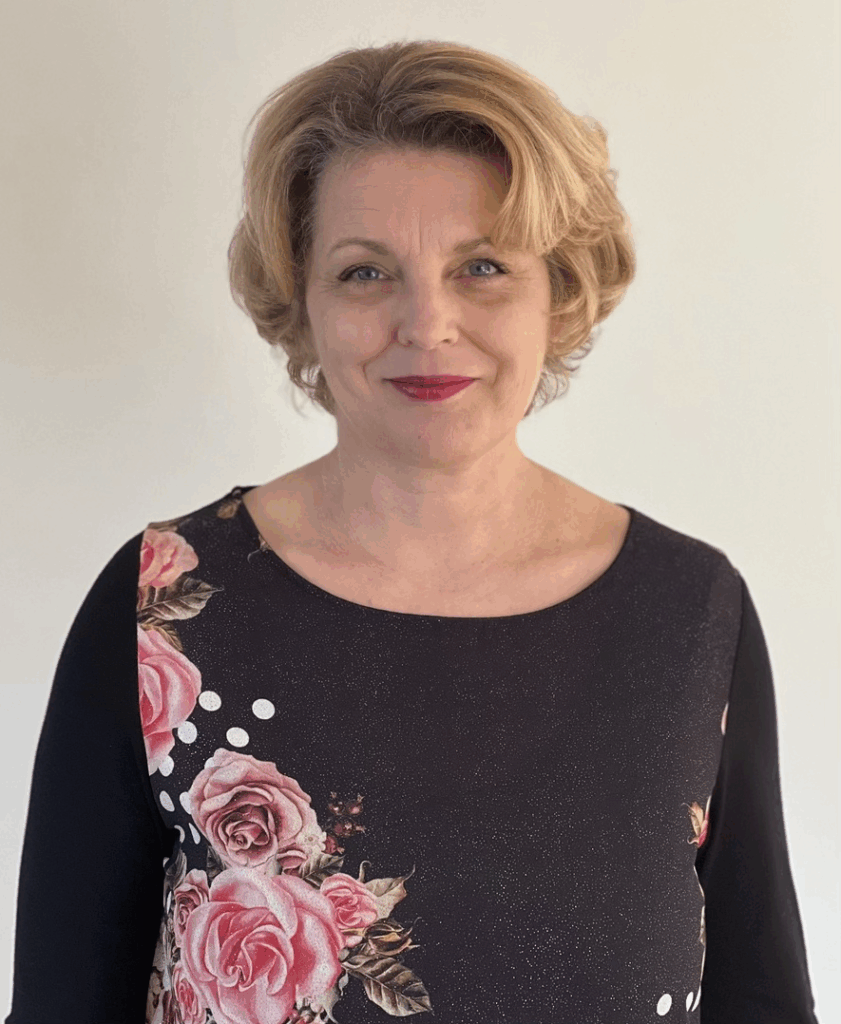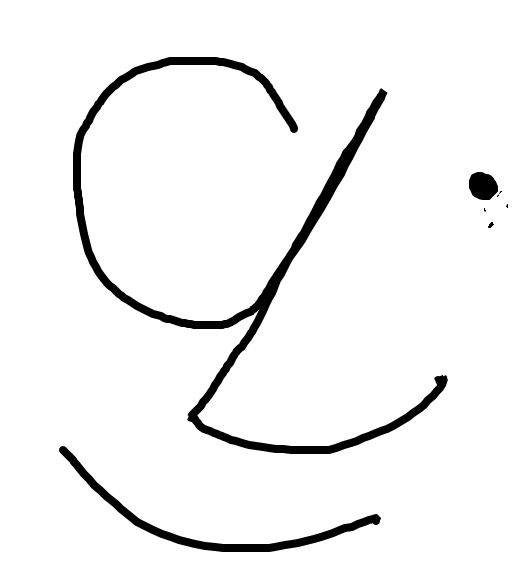The virtues of a teacher and his mission

Conference within the framework of the 40th International Willems® Congress
Mateja Tomac Calligaris
Lyon – 19 July 2025
Summary
Introduction
A holistic approach
Virtues in positive psychology
- Wisdom and knowledge: creativity, curiosity, critical thinking, love of learning, wisdom
- Courage: courage, perseverance, authenticity, enthusiasm
- Humanity: love, kindness, social intelligence
- Justice: equity, leadership, cooperation
- Moderation: forgiveness, humility, prudence, self-control
- Transcendence: appreciation of beauty and excellence, gratitude, hope, humour, spirituality
Knowing your own strengths
Which virtues are important for a teacher?
How can we improve?
Music as a path to developing virtues
A sense of mission in teaching
Introduction
First of all, I would like to thank the International Willems® Federation for giving me the opportunity to share some of my thoughts on our wonderful educational mission with you at their 40th congress. I am currently attending a specialist course at Alma Mater Europaea University in Maribor, Slovenia. I would also like to express my sincere gratitude to all my professors and university colleagues who, over the past year, have opened new and exciting doors of study for me, inspired by the latest pedagogical and psychological approaches.
I have devoted the last thirty years of my life to teaching music, working with children, parents, fellow teachers, students in education and professionals from various educational environments. Along the way, I have received numerous incentives to deepen my musical knowledge and teaching skills: how to structure lessons, how to sing, how to conduct reading and writing exercises. These are all fundamental aspects. However, a music teacher is not just someone who imparts knowledge and helps students acquire musical skills. A teacher is also someone who shapes the students they work with through their way of life.
Think about your own school experiences. Much of what you learned has been forgotten over time, but you surely still vividly remember the feelings you had in class, the atmosphere that prevailed at school, and the kind of relationship you had with your teachers. Did you feel accepted, respected, valued? Did your teacher see potential in you that needed to be developed, or did they pay little attention to you? Did they make you feel important or not? Did you feel free and joyful when learning, or did you feel the need to protect yourself, to hide, to avoid fear or shame?
Humans are not superficial beings. We experience deep feelings and intuitions. Children cannot be fooled by words or artificially created images: they can sense what is genuine.
And that is what I want to talk about at this conference: the importance of treating teachers holistically – not only in terms of their musical and didactic competences, but also in terms of their way of being, feeling and establishing relationships; in their emotions, values, goals, virtues, desires and even weaknesses. Teachers work with people, especially children, to take them to a higher level of existence. This is easier to achieve when we make full use of all the resources of our humanity.
A holistic approach
Before delving into the topic of human personality, I would like to emphasise an aspect that I consider fundamental: the most important goal of education is the well-being of the individual and society. In this sense, we must never forget that the musical knowledge and activities we impart to children must be placed in a broader context. What does our contribution mean for the holistic development of the child? Will they become more sensitive, cooperative, empathetic, and creative as a result of our work? What kind of relationship will they have with music? Will music be a source of beauty, an inner need, spiritual nourishment? Will our work be meaningful and leave a positive mark on the society in which we live?
We call this approach a holistic vision – a global orientation that embraces the whole human being. We do not focus solely on musical knowledge, but on the formation of a musically enriched human being. From this perspective, the whole is more than the sum of its parts.
Edgar Willems was one of the key thinkers behind this approach and, together with others, paved the way for contemporary pedagogical trends. Today, these principles are also present in official documents of UNESCO and the European Commission. The holistic vision focuses on fundamental values such as human dignity, well-being, social justice, respect for fundamental freedoms, the right to education and culture, solidarity, pluralism and tolerance.
Virtues in positive psychology
In this perspective, we also consider the role of the teacher. In addition to being an expert in musical language, each teacher has unique personality traits: physical characteristics, abilities, temperament and character. Today we will talk about virtues, i.e. positive personality traits with high ethical and moral value.
In general, we all know what virtues are. We can mention courage, patience, self-control, enthusiasm – just a few examples. However, two important contemporary psychologists, Christopher Peterson and Martin Seligman, have studied this topic in depth and supported their research with empirical studies.
Their work was developed within the framework of positive psychology, a movement that emerged in the 1990s and focuses on the positive aspects of human life: well-being, happiness, potential and individual virtues. Instead of focusing on mental disorders and their treatment, positive psychology explores positive emotions, contented living, the development of strengths, longevity, happy relationships, etc.
Peterson and Seligman based their study of virtues on a historical review. They examined the thoughts of ancient and contemporary philosophers, religious texts, and the principles of the most innovative educational programmes. Based on these studies, they developed a model that defines six universal virtues present in almost all cultures from antiquity to the present day: wisdom and knowledge, courage, humanity, justice, moderation, and transcendence.
These virtues are then divided into 24 sub-virtues. Let’s take a closer look at them.
Wisdom and knowledge
Creativity, curiosity, critical thinking, love of learning, wisdom
This virtue represents the cognitive abilities that enable us to acquire and use knowledge. Knowledge is a collection of information, facts and skills that we acquire through learning, experience and exploration. Knowledge is mostly measurable: it can be tested through tests, assessments or practical demonstrations.
Wisdom, however, goes beyond knowledge. It is the ability to apply knowledge and experience in an ethical and prudent manner. Wisdom includes a deep understanding of life, empathy, the ability to judge, and awareness of the consequences of one’s actions. It is related to intuition and the ability to see the bigger picture, even when we have limited information.
Questions for the teacher
- How much time and effort do I devote to acquiring new knowledge? Do I listen to music, read? Do I attend seminars and conferences? Do I write professional texts to form clear thoughts and share them with others?
- Do I know how to use my knowledge to guide the educational process, which has profound significance for every student entrusted to me?
Courage
Courage, perseverance, authenticity, enthusiasm
Courage includes traits related to an individual’s willingness to achieve their goals despite obstacles along the way. Because of these inner strengths, individuals step outside their comfort zone to do what is right – even if it involves taking risks.
Questions for the teacher
- Am I brave enough to act differently from established practices if I believe it is right?
- Do I leave my comfort zone when necessary?
- What am I willing to do to make the changes I perceive as necessary happen in the real world?
- Do I recognise the inner resources that help me maintain my enthusiasm for my teaching mission?
An example of good practice from Slovenia
There are two Willems® schools in Slovenia, which have been professionally, systematically and persistently dedicated to developing an approach to music education for children with special needs (especially children with autism and blind children). After decades of persistent work, awareness-raising, official initiatives and presentations of their work at numerous professional conferences, the Ministry of Education has set up an expert commission to prepare legislative changes that will enable the inclusion of children with special needs in public music schools.
Mila, a blind girl who attends our school, will be the first blind student in history to begin studying at the Ljubljana Conservatory of Music in September.
Courage, perseverance, equity and enthusiasm have led to important and significant results! !
Humanity
Love, kindness, social intelligence
Humanity encompasses the essential and characteristic traits of human nature, such as the ability to feel, express understanding, compassion and respect for others, especially in moments of vulnerability and need.
We have already emphasised how deeply a teacher’s kindness, friendliness and sensitivity are imprinted in a student’s memory and how they have a long-term impact on their openness and enthusiasm for learning. Cultivating humanity is therefore not only an ethical act, but also the foundation for building authentic and fruitful educational relationships.
Questions for the teacher
- Before entering the classroom, do I know how to find the inner attitude that allows me to connect with children through music?
- Am I honest with myself and with the children in this process?
- Am I able to control my emotions and be kind to all children, even those who test my patience the most?
Justice
Equity, leadership, cooperation
Justice means treating people fairly, so that our personal biases do not influence our decisions about others. It means giving everyone their due, without favouritism or discrimination. This is especially important when we are in a leadership role, such as a teacher in a classroom or a head teacher in a school.
Justice does not only concern individuals, but also extends to communities and wider society. In interpersonal relationships, it is expressed through the fair distribution of tasks, respect for agreements and consideration for the feelings of others. It promotes educational environments in which everyone feels valued, safe and responsible.
Questions for the teacher:
- Do I give all children equal attention, time and energy, or do I pay more attention to those I like better? Perhaps I care more for those who have problems and neglect those who seem to be able to cope on their own?
- Do I sincerely strive to cooperate with other teachers at the school where I teach? Do I have an open, respectful and constructive dialogue with the headteacher?
Moderation
Forgiveness, humility, prudence, self-control
Moderation is the virtue that helps us control our impulses and desires, leading us to a balanced life. In addition to self-control, it also includes forgiveness, compassion, humility, modesty and prudence. Together, these virtues protect us from various forms of excess and lead us to inner contentment, peace and stability.
Moderation is part of our spiritual dimension and, like other virtues, contributes significantly to who we are as human beings. Cultivating moderation in an educational environment means promoting balance, thoughtfulness and respect in relationships and pedagogical decisions.
Questions for the teacher
- Do I maintain peace and balance even in difficult situations when faced with provocative behaviour or everyday challenges?
- Do I strive for patience, forgiveness and prudence in my relationships with students, parents and colleagues?
- Do I live and strive for an educational style that promotes moderation, humility and mutual respect?
Transcendence
Appreciation of beauty and excellence, gratitude, hope, humour, spirituality
Transcendence is the ability to perceive a deeper meaning in life and feel connected to something that transcends our personal selves. It is expressed through gratitude, hope, spirituality, a sense of humour, and the ability to marvel at beauty and excellence.
These dimensions help teachers to overcome everyday challenges and rediscover the meaning of their pedagogical mission. Recognising what is beautiful, good and true strengthens motivation, joy and the ability to inspire others.
Questions for teachers
- Am I able to recognise and appreciate the beautiful things I experience every day at school and elsewhere?
- Do I feel part of something bigger that gives deeper meaning to my educational work?
- Am I able to convey hope and joy even in difficult moments?
Knowing your own strengths
Each of us has strengths – some more developed than others. If we were asked to name our most characteristic positive qualities, we would probably be able to list at least five. The strengths that we recognise most in ourselves and experience as alive are our personal strengths.
A useful tool for identifying personal strengths is the VIA questionnaire, which is available in various languages at www.viacharacter.org . According to this questionnaire, my two strongest strengths are critical thinking and perseverance.
It is important to know our strengths and live in accordance with them. Research shows that when we act in accordance with our inner qualities, we feel more authentic, fulfilled and experience healthy pride. A personal virtue is something we experience as an integral part of our essence and act on spontaneously. When we act in accordance with it, we do not feel exhausted, but invigorated.
Numerous studies confirm that the daily development and use of one’s own virtues increases the feeling of well-being, satisfaction and self-confidence, and improves mental and physical health and the quality of interpersonal relationships. Therefore, it is truly worthwhile to recognise, identify and strengthen your personal virtues – because living by them means living a better life.
Questions for the teacher
- Can I recognise and name the virtues that define me most deeply?
- Do I live and work in accordance with my personal virtues on a daily basis?
- Do I strive to continue developing my inner qualities in order to grow as a person and as an educator?
Which virtues are important for a teacher?
For us teachers, it is essential to ask which of these virtues are particularly important for effective educational work. In answering this question, I will draw on the work of Polona Gradišek, an educator and psychologist at the University of Ljubljana who specialises in positive psychology.
In her research, she has focused on studying which virtues have a positive influence on students. The results of her research have shown that the most valued virtues are those that belong to the virtues of humanity and transcendence.
In other words, students recognise as good teachers those who:
- express genuine affection and care for interpersonal relationships (love),
- are kind,
- appreciate the good things that happen to them (gratitude),
- look to the future with optimism and confidence (hope),
- see a deeper meaning in their lives and work (transcendence),
- and know how to maintain a sense of humour and a smile even in difficult moments.
It is also important that teachers are enthusiastic about their subject area and know how to convey this enthusiasm to others. Teachers’ ability to cooperate – i.e. their ability to work in a team – is also highly valued.
How can we improve?
It is important to realise that we can also progress and grow in the area of virtues. Although we have so far talked about virtues that are particularly important for a teacher’s work, it is crucial that we first develop our personal virtues – those that most authentically define us and express our “true self”.
Knowing your strengths is a valuable advantage. When our teaching is aligned with them, we feel more authentic, competent and confident. It is good for students to have the opportunity to meet different teachers on their school journey, each of whom radiates a different, balanced and harmonious spectrum of developed virtues.
Nevertheless, we can also consciously develop those virtues that we have identified as particularly valuable in the teaching profession. We can consider how to strengthen enthusiasm, love, kindness, cooperation, gratitude, hope, humour and a sense of the spiritual dimension.
Here are some concrete examples for practising kindness:
- We speak kindly to parents waiting for their children outside the school, even when we don’t have to. We can emphasise a child’s good qualities or recent progress.
- Take the initiative to help a colleague with a task that you know is difficult for them or that they are not very familiar with.
- After class, take a moment to chat with a student about their school or family life.
- We write a short message of thanks or encouragement to a student or colleague, highlighting their positive contribution or progress.
Even small everyday gestures, if sincere and conscious, can reinforce a particular virtue and gradually incorporate it into our educational style.
Music as a path to developing virtues
Musical practice offers a particularly fertile ground for the development of virtues in children and young people. Listening to beautiful and well-performed music, daily contact with art, and persistent work in learning a musical instrument naturally encourage inner growth.
Among the virtues that are most clearly strengthened in this context, we can identify:
- Perseverance, which is necessary to overcome the difficulties and frustrations that accompany any serious learning process;
- Self-control, which develops through following instructions and regular practice;
- Appreciation of beauty, which awakens through direct contact with valuable works of art and music;
- Transcendence, which manifests itself as a feeling of deep connection with something greater than ourselves;
- Humility and modesty, which we cultivate by accepting our limitations and working patiently;
- Enthusiasm that arises from discovering our own talent and the joy of being able to express ourselves;
- Gratitude, which develops when we recognise the value of music, teachers and the path we have travelled.
When we teach music in a consistent, gradual and humane way, we contribute deeply to the harmonious development of personality and make school a place where we grow not only in knowledge but also in humanity.
A sense of mission in teaching
In conclusion, it is important to emphasise that teaching should not be perceived merely as a profession or career, but as a mission. International studies (Wrzesniewski, Serow, Bullough, Hall-Kenyon, Gradišek) show that those who experience their work as a true calling – as an important contribution to society and the lives of others – experience greater job satisfaction, have more energy and stamina over time, and feel a deeper sense of personal fulfilment.
For teachers, this sense of mission manifests itself as a sincere emotional attachment to their relationships with students, a love for their subject area, and a willingness to be a guide and an important point of support in the growth of others. It is not just about transferring knowledge, but about transforming school into a place where we nurture humanity.
This thinking is deeply in line with the pedagogical vision of Edgar Willems, who saw teachers not as mere implementers of methods, but as sensitive mediators between art, life, and the harmonious development of the individual. For Willems, education means the inner awakening of what is already potentially present in the child – through lively and artistic experience.
Teaching, which we experience as a mission, brings enthusiasm, responsibility and dedication. And it is this awareness – more than anything else – that makes education a noble and deeply human art.
Thank you for your attention.
Mateja Tomac-Calligaris
Sources and bibliography
Gradišek, P. (2021). Samorazvijanje vrlin – pot d sebe in do dobrih odnosov z učenci // Developing Character Strengths – Path to Oneself and to Good Relations with Students. Ljubljana, Zavod Republike Slovenije za šolstvo.
Gradišek, P. (2020). Vrline in poslanstvo učitelja v odnosu do njegovega pedagoškega dela v razredu // Teachers’ character strengths and sense of a calling in relation to students’ satisfaction. In book: Vsak otrok si zasluži najboljšega učitelja (pp.73-89). Ljubljana, Pedagoška fakulteta.
Peterson, c., in Seligman, M. E. P. (2004). Character strengths and virtues. A handbook and classification. New York, Oxford University Press.


